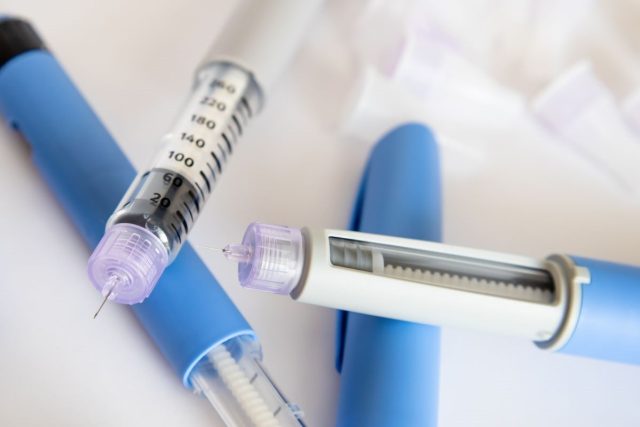Significant reduction seen in VTE rates, with similar reductions for patients with and without obesity
By Elana Gotkine HealthDay Reporter
THURSDAY, Nov. 14, 2024 (HealthDay News) — For patients with type 2 diabetes mellitus (T2DM), glucagon-like peptide 1 receptor agonist (GLP-1 RA) use is associated with a lower risk for venous thromboembolism (VTE), according to a study scheduled for presentation at the annual meeting of the American Society of Hematology, to be held from Dec. 9 to 12 in San Diego.
Cho Han Chiang, M.D., from Mount Auburn Hospital in Cambridge, Massachusetts, and colleagues examined whether GLP-1 RA use would reduce the risk for VTE among patients with T2DM in a retrospective, propensity score-matched multicenter database analysis. Patients who received GLP-1 RAs were compared to those who received dipeptidyl peptidase-4 (DPP-4) inhibitors; after propensity score matching, the final analysis included two cohorts of 168,428 patients each.
The researchers found that the incidence of VTE was 11.0 versus 12.9 events per 1,000 patient-years in the GLP-1 RA and DPP-4 inhibitor cohorts, respectively, with an 18 percent lower risk for VTE for those receiving GLP-1 RAs (hazard ratio [HR], 0.82). Compared with those on DPP-4 inhibitors, patients receiving GLP-1 RAs had a lower risk for pulmonary embolism and deep venous thrombosis (HRs, 0.78 and 0.85, respectively). In a subgroup analysis, the differences in VTE rates were similar for patients with and without obesity (HRs, 0.80 and 0.82, respectively).
“These results support the hypothesis that use of GLP-1 RA can lead to a reduction in VTE risk,” the authors write. “Further studies are needed to elucidate the mechanisms and causality underlying the association between GLP-1 RA use and reduction of VTE risk, and whether these findings extend to patients using GLP-1 RA for weight control without T2DM.”
Two authors disclosed ties to the pharmaceutical industry.
Copyright © 2024 HealthDay. All rights reserved.



















